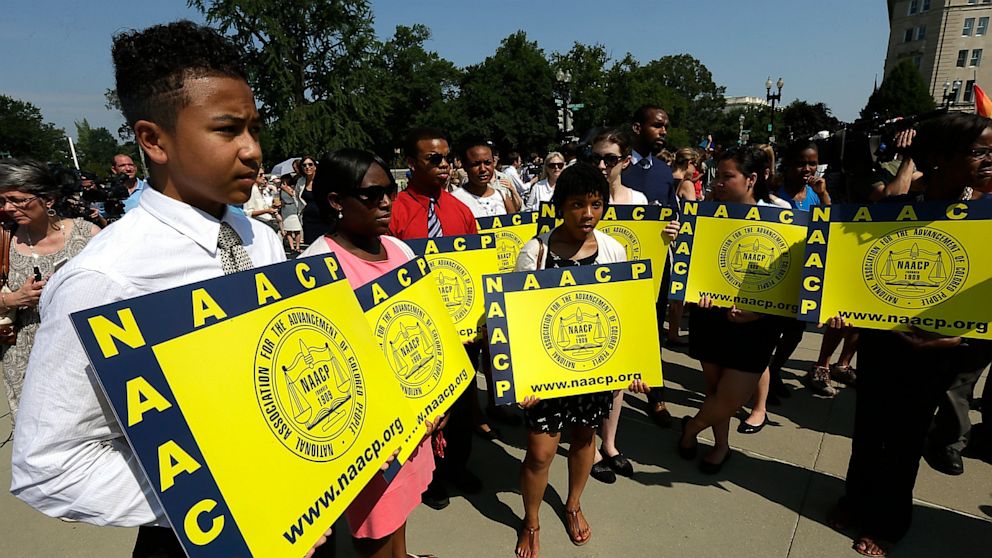Race at Center of North Carolina Voting Law Battle
Civil rights groups file lawsuit against North Carolina over voting law

Aug. 13, 2013— -- North Carolina's sweeping new voting law is facing multiple legal challenges from civil rights groups that argue it discriminates against black and young voters.
Gov. Pat McCrory signed the bill -- one of the toughest voting measures in the country -- into law on Monday. It requires voters to bring photo ID to the polls, cuts down early voting time by one week, eliminates same-day voter registration and bans pre-registration for youth voters who will turn 18 on Election Day.
The American Civil Liberties Union (ACLU), along with two other groups, filed a legal challenge that argues the law attempts to suppress minority voters, thereby violating the Constitution and the 1965 Voting Rights Act. The NAACP has filed a similar suit.
"Today's lawsuit is about ensuring that all voters are able to participate in the political process," Allison Riggs, a staff attorney for the Southern Coalition for Social Justice, said in a statement. "Taken together, the new restrictions in this law will disenfranchise hundreds of thousands of eligible voters, depriving many of our most vulnerable citizens from being able to easily exercise a constitutional right."
A third lawsuit will challenge the voter ID provision under the state's constitution, according to The Nation.
North Carolina is the latest battleground on voting rights. The Supreme Court this summer struck down a key provision of the Voting Rights Act that required certain states with a history of racial discrimination, including North Carolina, to get federal permission before changing their voting laws.
Since the restrictions were removed, several states have moved swiftly to enact new voting laws. The Justice Department has already indicated it will pursue legal action against Texas for its new voter ID law and North Carolina could be next on the list.
McCrory and Republicans noted that voter ID laws are popular in opinion polls and stated that the law is simply meant to prevent voter fraud.
"While some will try to make this seem to be controversial, the simple reality is that requiring voters to provide a photo ID when they vote is a common sense idea," McCrory said in a statement.
But Democrats and civil rights groups argue that voter fraud is a negligible problem in North Carolina. And moreover, they say that Republicans are simply trying to improve their chances of winning elections by prevent young and minority voters -- who tend to vote Democrat -- from casting ballots.
Statistics show that the law could significantly impact the outcome of elections. Seventy percent of black voters who cast ballots in 2012 voted early and blacks made up 29 percent of all early voters, even though they account for just 22 percent of registered voters, according to the NAACP's suit.
The law distinguishes between absentee voters and in-person voters. For example, absentee voters do not have to present photo ID during the voting process as long as they are registered. Only nine percent of black voters cast absentee ballots, while whites made up 86 percent of absentee voters, the NAACP lawsuit says.
"This law is a disaster. Eliminating a huge part of early voting will cut off voting opportunities for hundreds of thousands of citizens and turn Election Day into mess, shoving more and more voters into even longer lines," Dale Ho, director of the ACLU's Voting Rights Project, said in a statement.
The lawsuits may place pressure on Republicans, but not every election law expert is convinced the plaintiffs can win in court. Rick Hasen, a University of California, Irvine law professor who specializes in election law argues that the best way to fight laws like North Carolina's may be through Congress, and not the courts.
"The bottom line is that the way to fight much of North Carolina's strict law is not legally but politically," he wrote on his blog this week.




